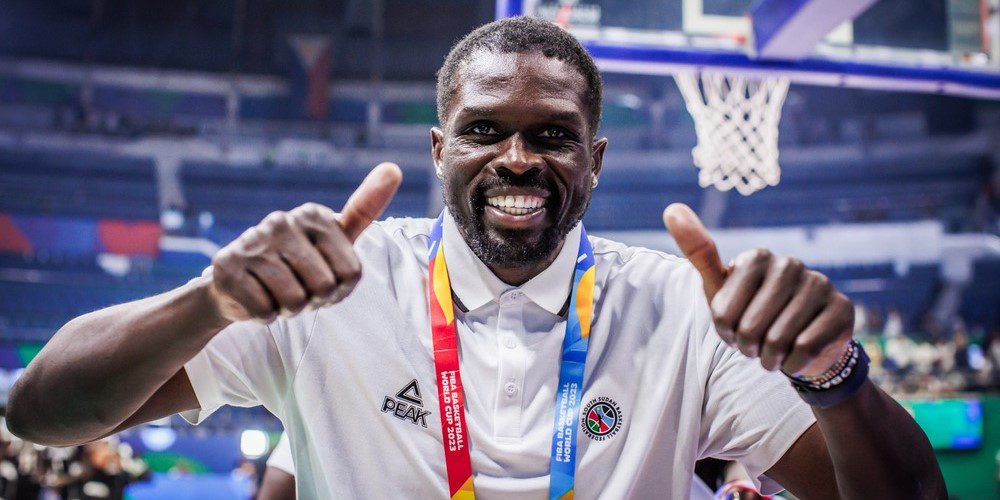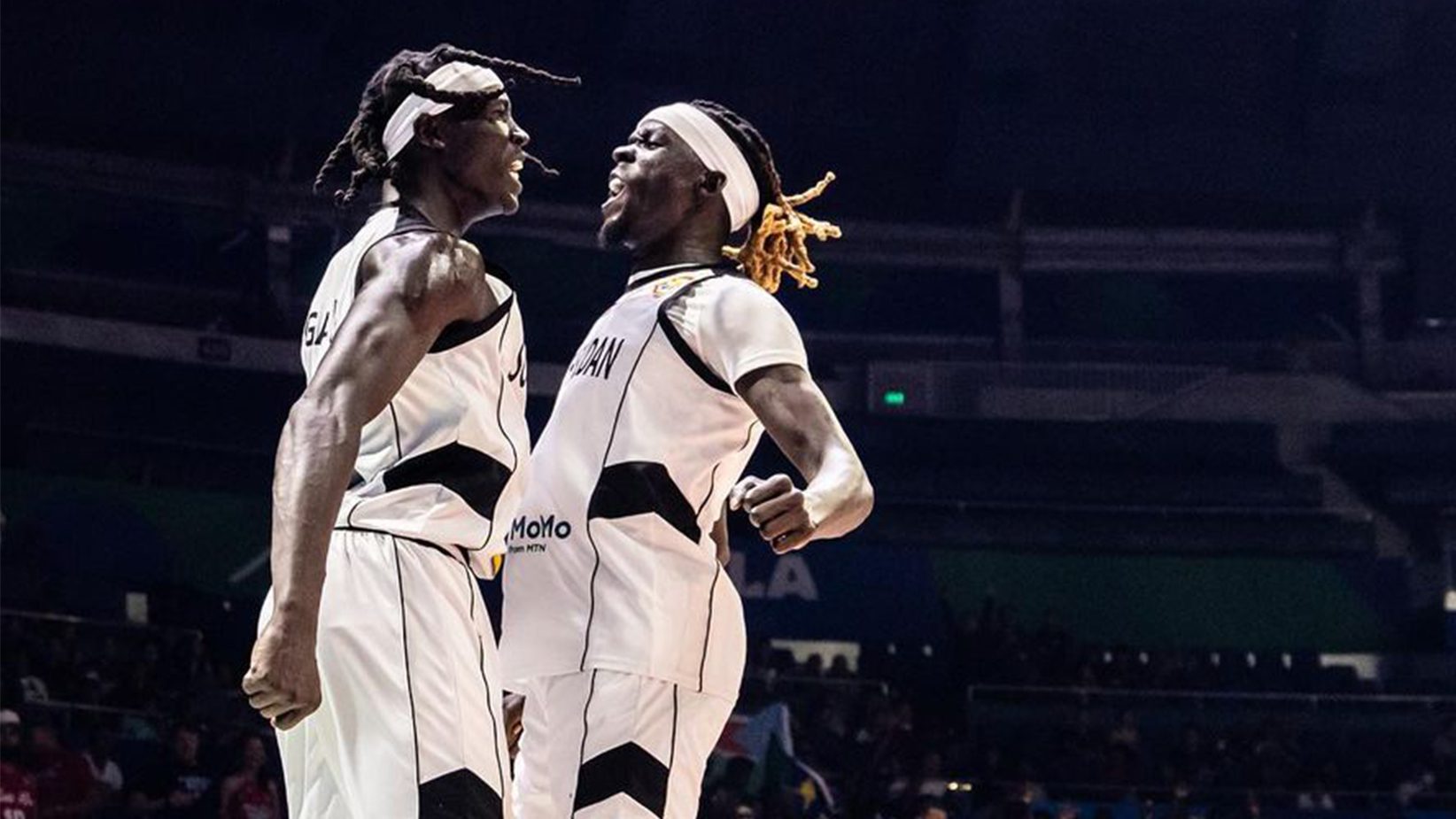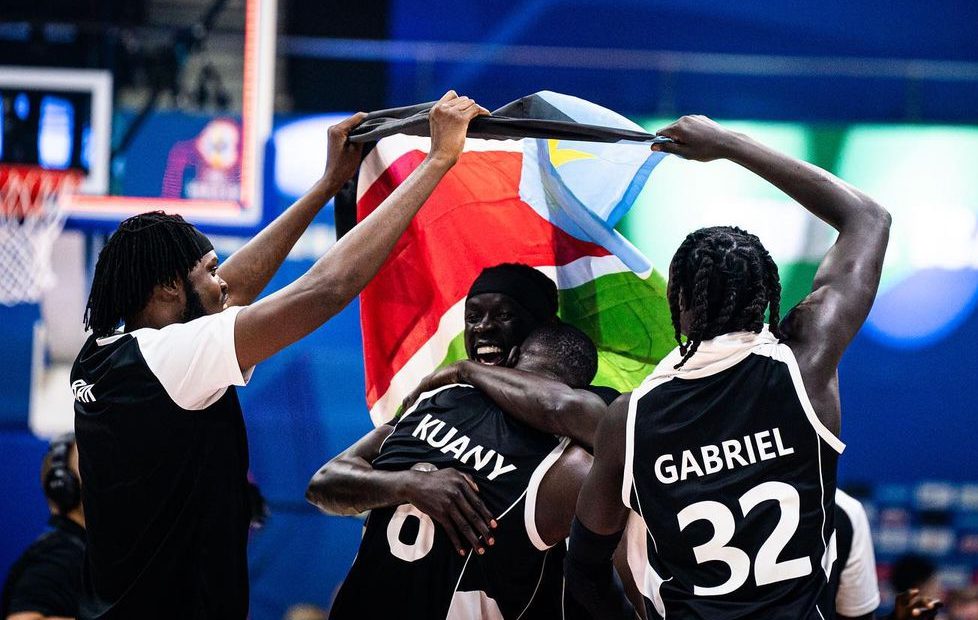Inside South Sudan It Is Impossible To Run For The Olympics

There is no doubt that it is one of the stories of sports people. South Sudan's national team, which represents the war-torn country without an indoor basketball court, is on the cusp of making its first Olympic appearance after rising from the lower ranks of African basketball.
Known as Bright Stars, they made headlines around the world last week by scoring one basket to win the Olympic preparation game against the United States. South Sudan led by 16 points and appeared to be on its way to one of the biggest upsets in sports history, before LeBron James took over late in the game and carried the US to a 101-100 victory.
The closeness of the win was almost as improbable as the Bright Stars' trip. South Sudan gained independence from Sudan in 2011, making it the smallest country in the world. The national team had not competed in a major tournament until 2021. As recently as last year, they were practicing outside on concrete fields filled with water as eagles circled their heads. Now, with a roster made up entirely of refugees and refugee children, they have become the first South Sudanese team in any sport to qualify for the Olympics.
“It still doesn't feel real, still,” captain Kuany Kuany told Basketball Forever earlier this year. Like, sometimes, you just sit back and say, 'Did we really do this?'
The team's rapid rise stems from the hard work of former NBA All-Star Luol Deng, who took over the game in his country five years ago as president of the South Sudan Basketball Federation. Deng, who was the head coach as recently as 2021 and still serves as an assistant, rebuilt the national team and funded it himself with the aim that it would exist to inspire hope, happiness and unity in the war-torn and ethnically divided country.

South Sudan has 64 ethnic groups and these entrenched loyalties have led to deep divisions and years of brutal conflict. By hiring the best players available without a second thought about nationality, Deng's goal was to eradicate the very concept of racism.
According to Elijah Manyok Jok who helps the people of South Sudan, the team has already made a big push in promoting a sense of unity in the country.
“Everyone has been following this team,” Jok said in an interview with Basketball Forever. “People who are different ethnically, different politically, they all come together. The original national team was our biggest missing link. Somehow in the past, we have had several different football teams, each associated with certain regions or nations. So the competition between them was actually showing the political and ethnic divisions that are going on in this country. But when the basketball team came in, it was a complete game changer. This team is one of the few sources of national identity we have. They really planted the seeds of social cohesion and harmony in the community.”
In an effort to build a competitive team, Luol Deng spent years recruiting the best players he could find of South Sudanese heritage. But putting them on the Bright Stars jersey wasn't always straightforward. Soft-spoken guard Sunday Dech, who was born in Ethiopia to South Sudanese parents, had to convince FIBA to allow him to play for South Sudan after representing Australia, his home since the age of six. Kuany Kuany's Finnish club has threatened to release him if he plays due to injury to represent South Sudan in the 2023 World Cup qualifiers. He packed his bags without hesitation and then his contract was torn up.
Some players, like 27-year-old Deng Acuoth, were skeptical about playing for South Sudan in the first place, having watched raw YouTube videos of the team's early games in gyms in Africa.
“Some of the boys were saying to me, 'Yo, you should come and play.' I was like, 'I don't know, is the next tournament going to be played in a place like that?'” Acuoth told BF. “But then I got a random call from an American number, it was Luol. I didn't see that coming. You would never expect such a person to call you out of the blue. But he told me his vision, about how this was bigger than basketball, and that he wanted me on the team. When he said that, I didn't think about it anymore.”
In the end, South Sudan's roster was filled with world-class players, all of whom had overcome unimaginable odds to find careers in basketball. Peter Jok, who played at the University of Iowa, lost his father and grandfather in the Civil War. His family fled South Sudan to Uganda when he was young. Wenyen Gabriel, who has played 150 games in the NBA, was taken from what is now South Sudan to Egypt when he was a two-week-old baby when his family fled the war. Majok Deng, one of the most talented men in the group, left his childhood home at the age of six without telling anyone, and went on a journey to follow his brother to a refugee camp in Kenya. He lived there for four years before settling in Australia.
Besides assembling the team's talent roster, one of Luol Deng's defining moves was to appoint Houston Rockets assistant Royal Ivey as the team's head coach. Deng met Ivey in 1999 when he moved to the United States on a basketball scholarship at New Jersey's Blair Academy. He arrived at Blair with nothing to his name and not even a pair of basketball shoes. Ivey, a 17-year-old undergraduate student at the time, lent Deng his sneakers and they became best friends overnight.
While Bright Stars' mission has always been beyond basketball, the players knew that in order to earn the credibility and respect needed to make an impact on the court, they had to do something special on it. This served as their main motivation for qualifying for the World Cup and the Olympics.
However, that dream quickly vanished. South Sudan stumbled on its first ever road to the world stage, failing to advance to the first round of the 2021 African Cup of Nations, known as the AfroBasket. The distraught players were at the airport, ready to fly home, when they were told that Algeria had withdrawn from the next round of qualifying due to the Covid-19 outbreak. South Sudan was given the chance to take over.
Because of this, instead of running away from home, the players boarded a plane headed to Rwanda for the next stage of the AfroBasket qualifiers, where they did enough to advance to the AfroBasket tournament. Bright Stars lost in the quarterfinals, but by entering AfroBasket in first place, they secured a place in the 2023 FIBA World Cup qualifiers.


With plenty of new talent on board, including star player Nuni Omot and former Philadelphia 76er Marial Shayok, the Bright Stars were ready when the World Cup qualifiers arrived. By playing exclusively with other African teams, they dominated the tournament, finishing 11-1 and making this country play for the first time in the World Cup. South Sudan were the talk of the town, crushing their opponents with speed, athleticism, and taking three points. It was an unusual style of play for an African team, most of whom prefer to slow down the game and make everything a physical slogan.
The Bright Stars lead in scoring (78.6 points per game), field goals (44.6 percent) and three-pointers (37.6 percent). In the last two categories, they were ahead of the young age in the competition. The team's high-octane, high-octane style of play is similar to the style of play often found in Western countries where its players grew up, such as Australia, Canada and the United States.
“Many other groups in Africa used to say, 'This style won't work here, just wait until you go to the next level,'” Kuany Kuany said. “Even recently, one of the Angolan coaches was saying, 'Yes, you were lucky.' But we were able to support you. It has been working for us.”


Having proven themselves on their continent, the World Cup gave Bright Stars the opportunity to show that they were not just a force against African opponents who are not yet used to their style of play. They got out of the starting blocks with early losses to Puerto Rico and Serbia. But they managed to beat China and the Philippines, before finishing their campaign with a 101-78 win over rivals Angola to secure one of the 12 Olympic spots as the best African team in the tournament. South Sudan's World Cup may be over, but their Olympic dream had just come true. The win prompted emotional scenes on the pitch and in the stands, as gravity began to kick in.
“It was joy and emotion after that game,” Marial Shayok told Basketball Forever. “The boys celebrated with the fans, they signed jerseys. It was such a great time, man, we were all just lost in it. “
Freshman point guard Carlik Jones, who had 26 points and 15 assists in the win, was brimming with pride after the game. “It means the world, it means the world to the people back home,” Jones said.
Amidst the pure joy in the postgame locker room, Luol Deng shouted above the noise, “Where are we going?” “Paris!” the players respond in unison, the song repeats in a loop.
Deng fought back tears when speaking to the media following the match.
“It's an unbelievable story. “It is a low-level issue, not only for the people of South Sudan, not only for Africa, but for the whole world,” said Deng. “It's an interesting story that most people don't hear. It is a unique achievement because it is more than basketball.”
In interviews with Basketball Forever, many players were still considering the magnitude of the team's trip. Sunday Dech talked about the real feeling of seeing the flag of South Sudan flying in the World Cup. Khaman Maluach, a 17-year-old Duke commit and top-three pick in next year's NBA draft, said the entire national team experience felt like something out of a movie. Many players spoke of flying back to South Sudan with their teammates and being mobbed by thousands of fans at the airport.
The next step for Bright Stars is the Olympics, where they are drawn against the United States and Serbia. Despite all that they have achieved, South Sudan still faces difficulties. But that suits them well. They don't know anything else.
Source link



